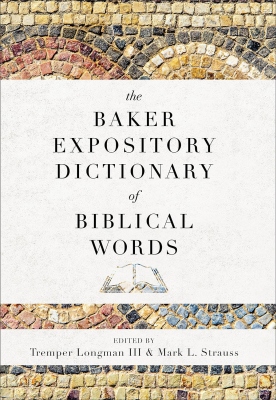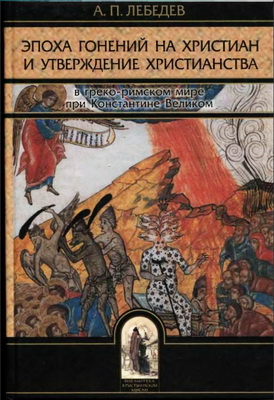
Longman III - Strauss - The Baker Expository Dictionary of Biblical Words - модуль BibleQuote
Tremper Longman III, Mark L. Strauss - The Baker Expository Dictionary of Biblical Words
Grand Rapids, MI: Baker Books, 2023. – 1168 p.
ISBN 978-1-4934-3441-1
Words are the building blocks of human language, and it is impossible to understand a written text without understanding the meaning of its words. When English speakers read a text in English, they know from prior experience the meaning of its words and—just as important—how these words interact with one another to produce an act of meaningful communication.
We believe the Bible is God’s Word, his message to humanity. If we are to hear God speak to us today, we must understand the meaning of its words. A key challenge we face, however, is that the Bible was not written in English. The Old Testament was written in Hebrew (with a few Aramaic sections), and the New Testament was written in Greek. To understand its message we must know the meaning of these Hebrew and Greek words. This is where Bible translation comes in, and there are many excellent versions of the Bible for English speakers. Your most important Bible study tool is a good translation of the Bible.
Yet by placing two translations side by side, you see that many words and phrases are translated differently in different versions. Compare these three versions of 1 Thessalonians 4:3–4:
Christian Standard Bible (CSB)
For this is God’s will, your sanctification: that you keep away from sexual immorality, that each of you knows how to control his own body in holiness and honor.
Good News Translation (GNT)
God wants you to be holy and completely free from sexual immorality. Each of you should know how to live with your wife in a holy and honorable way.
New American Standard Bible (NASB)
For this is the will of God, your sanctification; that is, that you abstain from sexual immorality; that each of you know how to possess his own vessel in sanctification and honor.
While all three versions speak similarly of “sexual immorality,” there are other significant differences. The CSB and the NASB speak of “sanctification,” while the GNT refers to being “holy.” Even more strikingly, while the CSB speaks of controlling your “body,” the GNT speaks of living with your “wife,” and the NASB of possessing your “vessel.” What’s going on here? The answer is that certain words are being interpreted and translated differently.
This expository dictionary is meant to help you understand the various possible meanings of Hebrew and Greek words and to determine from their contexts their most likely meanings. While there is no substitute for learning to read Hebrew and Greek, students of God’s Word can be greatly aided by a tool that examines the meaning of the original words of Scripture. In this dictionary Hebrew and Greek words are organized under English headings and their various possible meanings are discussed.
* * *
FLOCK
See also GOAT; LAMB; RAM; SHEEP; SHEPHERD
Old Testament
ʿēder 1 (עֵדֶר) 5739 (6373) 39x, n., flock, herd, stock
ṣōʾn (צֹאן) 6629 (7366) 274x, n., flock
Each of these terms refers broadly to groups of small animals, such as sheep or goats. This can be seen clearly in Genesis 30:40, where the two terms are used interchangeably to describe livestock belonging to Jacob and Laban: “Jacob separated the lambs and made the flocks [ṣōʾn] face the streaked sheep and the completely dark sheep in Laban’s flocks [ṣōʾn]. Then he set his own stock [ʿēder] apart and didn’t put them with Laban’s sheep.”
Despite this overlapping range of meaning, there are slight differences in how each term is used. ʿĒder most often refers to sheep (e.g., 1 Sam. 17:34; 2 Chron. 32:28; Ps. 78:52), but it can also refer to other animals. For example, in Song of Songs 4:1 the lover’s hair is likened to a “flock of goats.” In Joel 1:18 ʿēder refers to a collective of cattle and to a collective of sheep.
Ṣōʾn more clearly refers only to small livestock. For example, in Exodus 9:3 it is used in a list that distinguishes it from large animals such as horses, donkeys, and camels. Ṣōʾn sometimes refers specifically to sheep (e.g., Gen. 38:12), but it can also refer specifically to goats (e.g., Gen. 38:17) and at times to both sheep and goats together (e.g., Lev. 1:10). In addition, only the term ṣōʾn is used in reference to animals from the “flock” that are used in sacrifices.
Both ṣōʾn and ʿēder are used metaphorically to refer to people and highlight their vulnerability and consequent need for care and direction. Reflecting on the exodus, Psalm 78:52 states, “He led his people out like sheep [ṣōʾn] and guided them like a flock [ʿēder] in the wilderness.” Several other psalms also highlight God’s relationship with his people using “sheep/flock” imagery (e.g., Pss. 74:1; 77:20; 79:13; 80:1). However, Psalms also speaks of God as a shepherd who has “rejected and humiliated [his people]; . . . [and who] hand[s] us over to be eaten like sheep [ṣōʾn]” (Ps. 44:9–11).
REPORT
See also ANNOUNCE; HEAR; SHOW; TELL
Old Testament
šəmûʿâ (שְׁמוּעָה) 8052 (9019) 27x, n., message, rumor, report
šēmaʿ (שֵׁמַע) 8088 (9051) 17x, n., report, news, rumor
These nouns are derived from the verb šāmaʿ (“hear, listen, obey”; see LISTEN). Thus, the nominative takes on an understanding of “news,” “message,” “rumor,” or “report.” It is something that has been heard through various means of communication. Social interaction in the ancient Near East was fueled by linguistic communication. A social nexus was not possible without common building blocks of social intercourse: language, speech, hearing, and delivery. These two nouns are used for the reception of a report whether the news is good or bad. In Numbers, Moses reminds Yahweh that if he slays Israel, then the surrounding nations will hear a report of this tragic news and conclude that God could not save his people (Num. 14:15–16). A common rumor came to the queen of Sheba concerning the wisdom of Solomon, and thus she came from Sheba to test his wisdom in all things (1 Kings 10). A mere rumor in the ancient Near East could change the fortunes of a nation. In Jeremiah it is recorded that the Chaldeans hear a report that the Egyptians were on the move and thus ceased the siege of Jerusalem (Jer. 37:1–7). Particularly cogent among the prophets is the understanding that a spokesman of Yahweh can hear a message or report from God. Thus, in Isaiah and Ezekiel šəmûʿâ functions as a term for prophetic revelation (Isa. 28:9–19; Ezek. 21:7). The prophets make use of this noun to connote the message that the speaker hears from God (Isa. 37:7; Jer. 49:14; 51:46). Therefore, what the prophet transmits to the people is divine revelation from Yahweh himself. This type of usage of the noun emphasizes the divine origin of the prophetic message.
New Testament
akoē (ἀκοή) 189 (198) 24x, n., report, act of hearing, what is heard
This noun can refer to the report that one hears or the process of hearing something, usually the good news of the gospel. The hope is that when one hears the message, there will be a positive response. Romans 10:16b–17 summarizes most of the uses of this word: “For Isaiah says, Lord, who has believed our message? So faith comes from what is heard, and what is heard comes through the message about Christ.” Matthew tells us that as Jesus went all over Galilee teaching, preaching, and healing, “news about him spread” (Matt. 4:23–24; cf. 14:1; Mark 1:28). Usually, the report comes from others’ testimony about Jesus (Gal. 3:2, 5). Paul is thankful that the Thessalonians received the message correctly: “This is why we constantly thank God, because when you received the word of God that you heard from us, you welcomed it not as a human message, but as it truly is, the word of God” (1 Thess. 2:13). An interesting use is when akoē is used to translate Isaiah’s message about the deafness of the Israelites: “You will listen and listen [lit., “hear the report”], but never understand” (Matt. 13:14; Acts 28:26). Those who reject the gospel message are said to have “an itch to hear what they want to hear [lit., “itch the hearing”]” and thus “will turn away from hearing the truth” (2 Tim. 4:3–4; cf. Heb. 4:2). For true faith, the “message” must always be combined with “believing the message.”





Комментарии
Пока нет комментариев. Будьте первым!